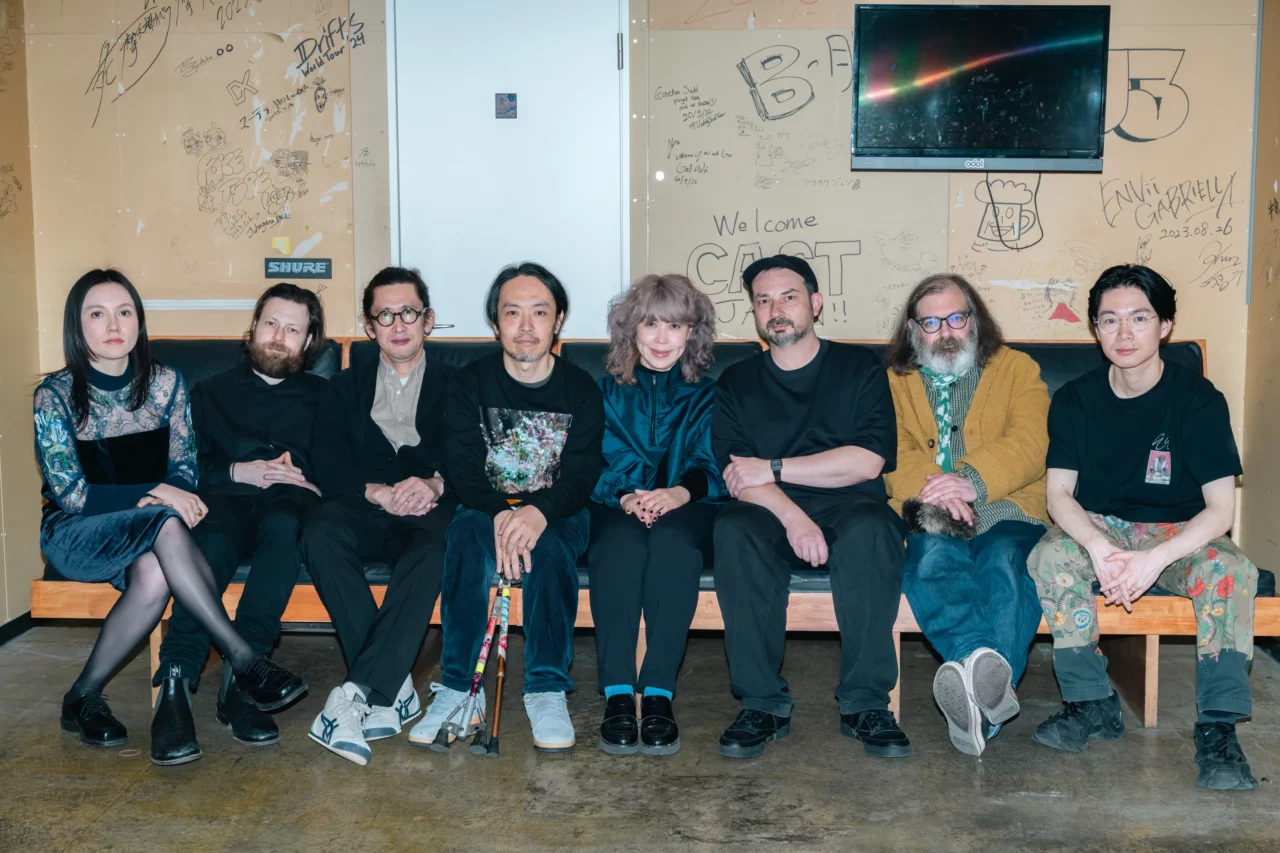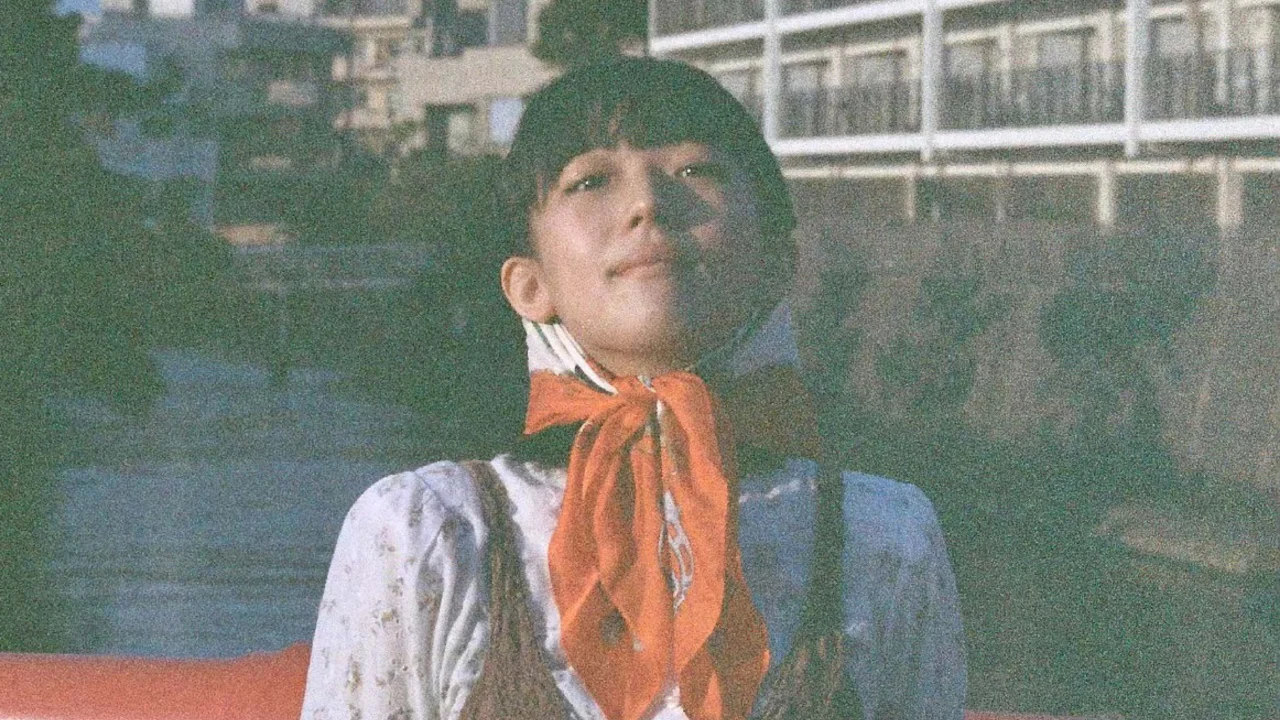INDEX
How Eiko Ishibashi Approaches Music-Making
Where did the creation process specifically begin?
Ishibashi: Takahisa Yamamoto, the drummer, kept saying, “Hurry up and make the next album with vocals.” While doing vocal live shows with the band during ‘Drive My Car,’ we gradually started thinking, “Maybe it’s time to make something with this lineup.” That was the trigger. To put it simply, I wanted to spend more time playing with the band — well, basically, I just wanted to make music and hang out with everyone.
You’re not a Showa-era jazzman, though [laughs].
Ishibashi: But honestly, that’s pretty much how it feels [laughs].

Photo by Shinichiro Shiraishi
It’s been about seven years since your last album with vocals, and not all the songs convey anger; there are also beautiful and poppy tracks.
Ishibashi: Yes, that’s true. When I was making the album, I wanted to create songs that were easy to listen to and not too difficult for me to perform, but they gradually became more complex.
Do you remember which song you recorded first?
Ishibashi: “Mona Lisa.” This time, we recorded the songs in the order they were completed. I made demos of about three songs with just vocals and Rhodes piano and played them for Marty Holoubek and Tatsuhisa Yamamoto, then we recorded the basic tracks all together.
While working on this, I was also composing the music for Evil Does Not Exist, so there was a break in the recording schedule. On the day we recorded the second round of basic tracks, director Ryusuke Hamaguchi, who had just finished filming Evil Does Not Exist, came by looking very refreshed.
That’s a nice story. This time, the arrangements are really rich and full, aren’t they?
Ishibashi: Yes. Since we had decided to release it directly on “Drag City,” there was no strict deadline, so I took my time. I arranged the music by myself, sometimes spending three days just deciding on one overdub sound.
The dense arrangements might be because Jim O’Rourke and I both bought an Osmose synthesizer around the same time, and we got really excited and played around with them a lot. Jim also offered to do the string and horn arrangements, so I asked him to handle those.
“Drag City” is an independent label based in Chicago, known for experimental music. They have released works by Stereolab, Jim O’Rourke, The High Llamas, and Ishibashi Eiko’s albums “car and freezer” (2014) and “The Dream My Bones Dream” (2018).
Has your production environment stayed the same?
Ishibashi: I still use Pro Tools, but I really work in a very analog way.
Do you feel that this analog approach gives you a stronger sense of actually making music?
Ishibashi: Yes, there might be places I can only reach this way, places I can’t get to otherwise. It’s the same with orchestral works. Some people create entirely with MIDI, but I prefer to play something myself first and then convert it to MIDI.
So, rather than completing everything purely in software, music for you comes from something that has passed through your physical body and senses?
Ishibashi: Exactly. I absolutely never use a grid or a click track.
I think using a click track makes things easier, though.
Ishibashi: That’s true, but I get bored. I start to dislike facing the work. It’s different when I’m working on film music, but basically, I don’t use it.
Because film work requires precision down to the frame, right?
Ishibashi: Yes, exactly.

You also do improvisational work and performances, but has the role improvisation plays in your music changed over time?
Ishibashi: It might not have changed. For this album, I did add synth improvisations over some mostly finished tracks.
It seems there’s also a sort of self-dialogue aspect to it.
Ishibashi: Yes, that’s true for the album, and I’ve been really enjoying improvisation in live shows too. But whereas I used to want to play with anyone, now I feel like I’m okay with not doing that anymore.ith that.
Why do you think that is?
Ishibashi: Maybe because I’m not very interested in improvisation that’s just about throwing out things from one’s stock or toolkit. Music isn’t a kind of word game or quick-fire quiz.
When you watch video sites, there’s a lot of flashy, super-technical stuff — music nowadays has a sports-like aspect. Watching videos on YouTube of “Look what phrase I can play,” it’s impressive but also makes you wonder, “So what?”
Ishibashi: I think I don’t really need to do that myself.
Maybe the meaning of music itself is changing nowadays.
Ishibashi: Yes, definitely. The experience of “listening to music” has also changed fundamentally. For me, working on film music has made me think about music in a deeper way, which might be a big part of it.
























